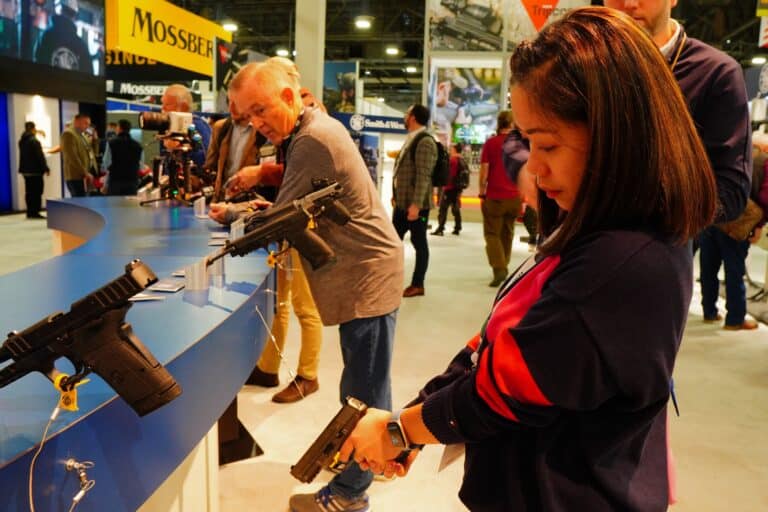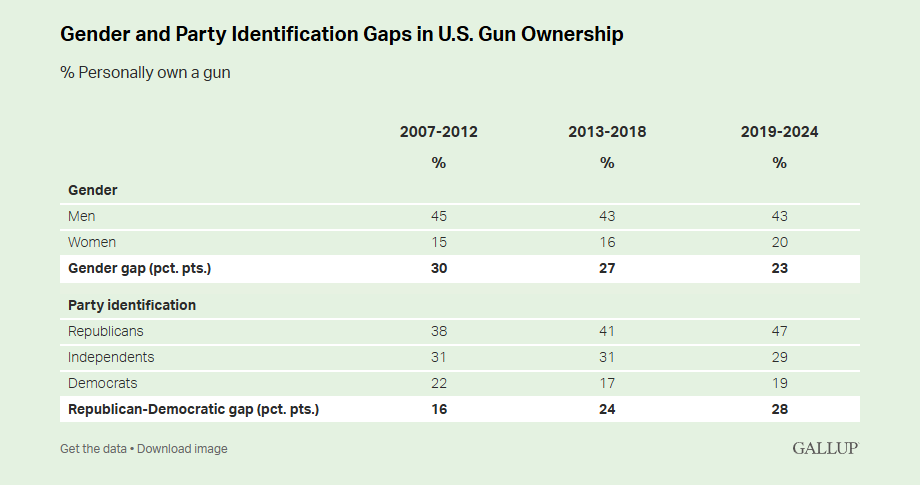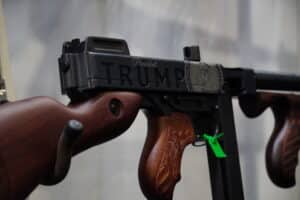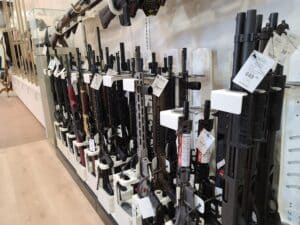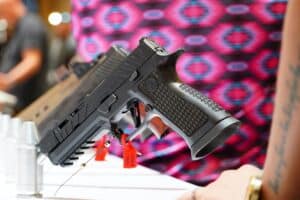Americans are now more likely to be divided by political party than gender when it comes to whether or not they own a gun.
Those are the findings of new polling Gallup released on Thursday. Republican women and Democratic men largely drove that shift. However, the movement resulted in a wash, with about the same number of Americans reporting they own a gun as they did over a decade ago.
“According to six-year groupings of Gallup’s annual measurement of personal gun ownership since 2007, the percentage of Republican women who own a gun has increased from 19% in 2007-2012 to 33% in 2019-2024,” Jeffrey Jones, who oversees Gallup research and analysis, said in a post about the polling. “Meanwhile, the rate has fallen seven percentage points among Democratic men, to 29%, and is down five points among independent men, to 39%.”
The results show American gun ownership trends have been remarkably stable but also reveal the shifting demographics under that calm surface. The poll’s increase in female gun owners matches those found in previous polling and industry research. Although, the decline in ownership among Democrats may be on pace to reverse if Gallup’s other recent polling is accurate. Democrats’ opposition to handgun bans dropped sharply in October, probably not coincidentally, as Kamala Harris put a heavy emphasis on her own handgun ownership.
But, if gun ownership does become an increasingly partisan phenomenon, it could put gun rights on a more precarious footing in the long term.
There is some reason to think Gallup’s numbers may not be fully representative, though. The overall gun ownership stagnation Gallup identified is at odds with some other indicators–especially in the wake of record gun sales during the pandemic. Polls from the Associated Press, the University of Chicago, and NBC News all identified gun ownership spikes post-2020.
Some of that dichotomy could stem from an increasing unwillingness of some Americans, especially minority women, to tell researchers they own guns. Last year, a study by the New Jersey Gun Violence Research Center at Rutgers University found reluctance to speak with pollsters or academics could impact the accuracy of gun ownership polling–and that impact could be significant.
“Bottom line of the study is that some gun owners aren’t comfortable disclosing firearm ownership in surveys. So, from a research perspective, we may not be fully capturing who owns firearms in the US,” Allison Bond, lead author of the study and a doctoral student at the center, told The Reload at the time. “That’s limiting our understanding of firearm ownership and also our ability to reach these individuals and provide them information on things like secure firearm storage methods.”
Still, it’s not clear if that’s a new effect or an underlying issue that’s impacted gun studies for a long time. Gallup’s research has also followed similar standards over the years and should be able to provide trend insights even if its topline numbers are more uncertain.
Gallup found that, while the gap between men and women gun owners had closed, men were still more than twice as likely to own guns.
“The model estimates that the statistical odds of a man owning a gun are 3.1 times greater than the odds of a woman owning a gun, after taking into account the effect of other variables,” Jones wrote. “That compares with a much larger 4.5′ odds ratio’ for men versus women when applying the same model to the 2007-2012 data.”
On the other hand, partisanship has taken on a more significant role in whether somebody owns a gun. Gallup said that even though party affiliation wasn’t a good predictor of gun ownership from 2007 through 2012, Republicans are now much more likely to own guns than non-Republicans, and the opposite is true of Democrats. Unsurprisingly, political ideology serves as a similar predictor, with conservatives much more likely to own guns than liberals.
Gallup identified several non-political factors that played a role in whether somebody owned a gun in 2024, too. Those who live in rural areas or the south, have a higher income, or are older were more likely to own guns than the average person.
Meanwhile, the pollster said some of the factors that used to separate gun owners from non-gun owners have faded over time.
“Race, marital status and education had been among the strongest predictors of gun ownership in the 2007-2012 data, but those factors are less influential today as political party, ideology and income have grown in importance,” Jones wrote.
Gallup said rural men were the most likely to own guns, at 67 percent, among those surveyed. Women between the ages of 18 and 29 were the least likely to own guns, at just nine percent.
Overall, the pollster said about a third of Americans report they personally own a gun, and 44 percent said there is a gun in their home. That’s in line with previous polling, but the makeup of American gun owners has shifted significantly over the years.
“A steady 31% of U.S. adults personally own a gun, while another 13% say there is a gun in their household that belongs to someone else,” Jones wrote. “The stability in the overall figures obscures an increase in ownership among women in general, driven by Republican women. At the same time, fewer Democratic and independent men own guns, suggesting that gun ownership decisions may be influenced by one’s political beliefs more than in the past, likely because of the salience of the gun issue in political campaigns and political culture today.”
The closing of the gender gap on guns could bring Americans’ views on gun policy more in line, but not if gun owners increasingly sorting along party lines.
If Democrats increasingly abandon gun ownership and, in turn, become increasingly hostile to the idea at the same moment Republicans increasingly embrace it, that could result in an even more severe seesawing of American gun laws depending on who has control of the local, state, and federal levers of government at any given time. That’s certainly something that’s already played out to a noticeable degree, especially in deep red and blue states where gun policy diverges significantly. But it’s a dynamic that could intensify the more polarized gun ownership becomes.

